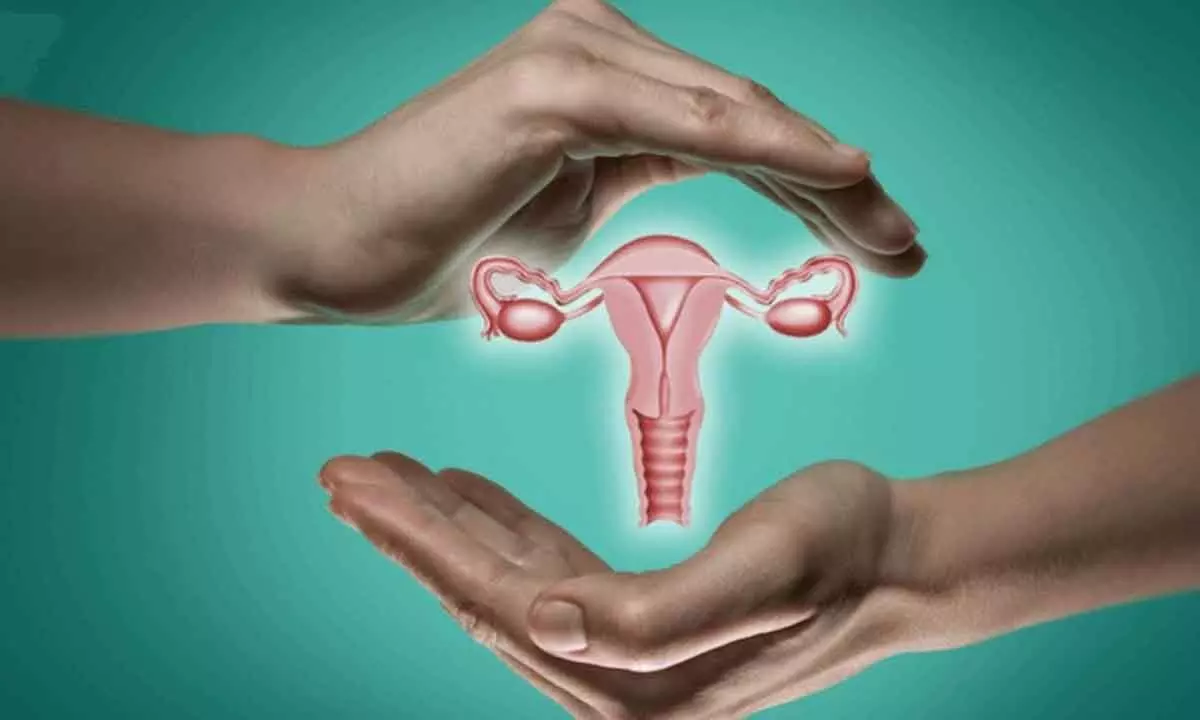Hysterectomy , causes and treatment protocol

Dr Nalluri Aruna Rao, Head of Obstetrics and Gynaecology at Nalluri Nursing Home in Ongole, shares valuable information on why they suggest a hysterectomy and its treatment protocol, to create awareness among women.
Dr Nalluri Aruna Rao, Head of Obstetrics and Gynaecology at Nalluri Nursing Home in Ongole, shares valuable information on why they suggest a hysterectomy and its treatment protocol, to create awareness among women.
What is a total hysterectomy?
Total hysterectomy is the most common type of hysterectomy that is performed and involves the removal of the entire uterus, including the cervix (the neck of the womb).
Are there any methods or techniques involved in performing a total hysterectomy?
Different surgical techniques or methods can be used to perform a total hysterectomy, such as:
• Abdominal Hysterectomy
• Vaginal Hysterectomy
• Laparoscopic Assisted Vaginal Hysterectomy
• Totally Laparoscopic Hysterectomy
The laparoscopic hysterectomies have earlier and easier return to normal activities post-surgery.
Who needs the totalhysterectomy?
A woman requires a total hysterectomy if she is suffering from
• Cancer of the ovaries and uterus
• Endometriosis
• Large uterine fibroids
• Chronic uterine infection
• Severe pain associated with menopause
• Intestinal or bladder blockage secondary to uterine issues.
• Chronic pelvic pain
But, the criteria for various medical procedures differ from patient to patient and depend on their general health, medical history, and medical conditions. The patient should consult a doctor to know more about her eligibility or ineligibility for any medical procedure.
What are the benefits of a total hysterectomy procedure?
The benefits of a total hysterectomy are many. It
• Eases abnormal bleeding
• Treats urinary prolapse
• Prevents the possibility of uterine cancer
• Provides relief from endometriosis and all the related symptoms
• Provides relief from uterine fibroids and all the related symptoms
What are the pre-procedure guidelines to follow for a total hysterectomy?
Preparation for a total hysterectomy typically involves several steps:
• Physical examination to determine the overall health
• Pelvic exam
• Blood and urine tests
• Complete medical history discussion with the surgeon
If the patient smokes, she is advised to stop smoking for at least 6 weeks before the surgery since it can cause problems during the operation, and can also delay the healing process. The woman will be advised to not eat or drink anything at least 12 hours before the procedure. The doctor may prescribe an enema or a laxative to empty the bowels thoroughly before the surgery, and some medicines to reduce the risk of heavy bleeding during the surgery. The patient may have a discussion with the anesthetist regarding the anesthesia to be administered for the surgery, and its effects on her.
Are there any side effects of undergoing a radical hysterectomy?
There are some side effects, like
• Occasional spotting or pink discharge for up to about 6 weeks.
• Hot flashes
• Insomnia
• Joint pain
• Early menopause, if the ovaries are removed.
• Weakness of the pelvic muscles and ligaments that support the vagina, bladder, and rectum.
• Headache • Hair loss
If any such side effects are observed, the patient should not try to self-medicate but see the doctor as soon as possible.
What is the recovery period after undergoing a total hysterectomy procedure?
The recovery period after a total hysterectomy depends on the type of hysterectomy undergone. For Laparoscopic surgeries, discharge is usually on the first or second post-op day. The patient can resume normal activities in a week. For open surgeries, the patient is usually discharged on postoperative days 3-5. The return to normal activities is usually between four to six weeks.
that are the post-operative guidelines one needs to follow undergoing a total hysterectomy procedure?
Some of the post-operative guidelines following a total hysterectomy are:
Overnight stay in the hospital for 1 to 2 days. The patient will be monitored for discomfort and given medications to prevent pain and infection.
The patient may have to take a liquid diet temporarily. The catheter that was inserted to allow the urine to drain will be removed the day after surgery.
After any surgery, constipation is a common problem due to the number of medicines and inactivity. Eating fruits and vegetables and drinking extra fluids may help avoid constipation. And if that is not enough the doctor may prescribe a stool softener or a laxative. She may need to use sanitary napkins if vaginal bleeding occurs after a hysterectomy procedure and last for a few weeks. She should not be lifting heavy weights or any form of strenuous physical activity for at least up to 6 weeks postsurgery. She should also need to avoid tub baths for at least 6 weeks after the surgery.
How to know if the total hysterectomy procedure is a success?
The results vary from person to person. Ideally, if the patient is free from the earlier painful and discomforting symptoms, then quite obviously, the procedure has been a success. If the patient experience side effects after the procedure for prolonged periods, then she may need to consult with her doctor once again to understand the situation and opt for further treatments.
Any alternatives to a total hysterectomy?
Total hysterectomy should be undergone only when absolutely indicated and when all medical options have not provided relief.














